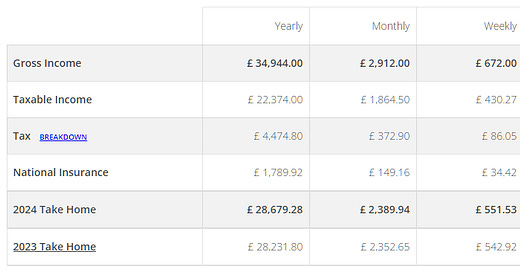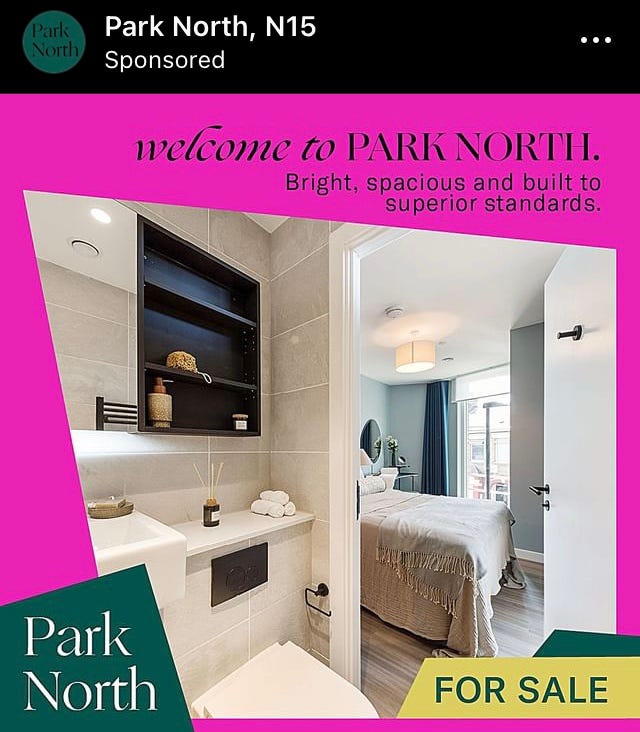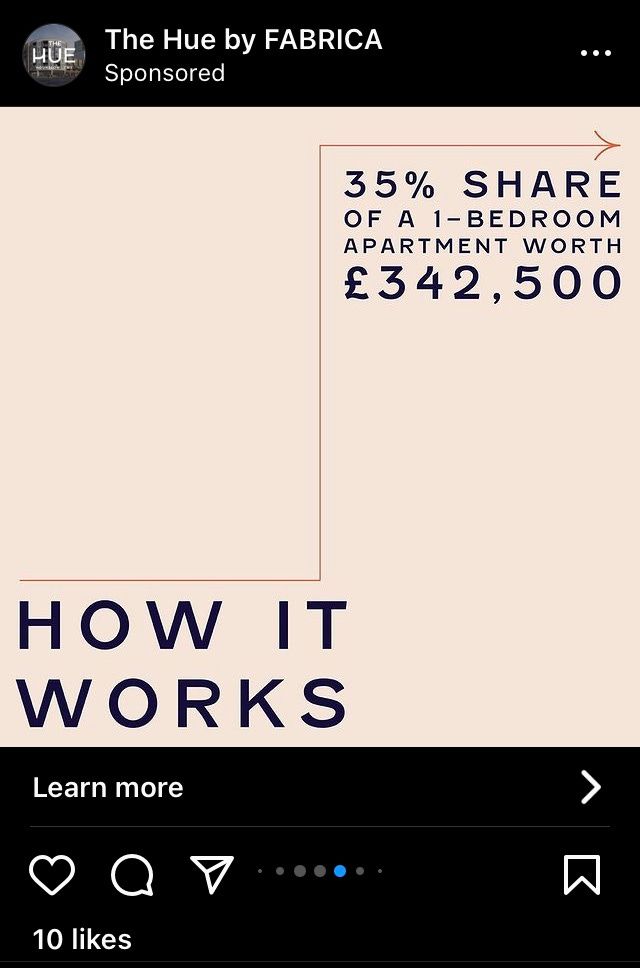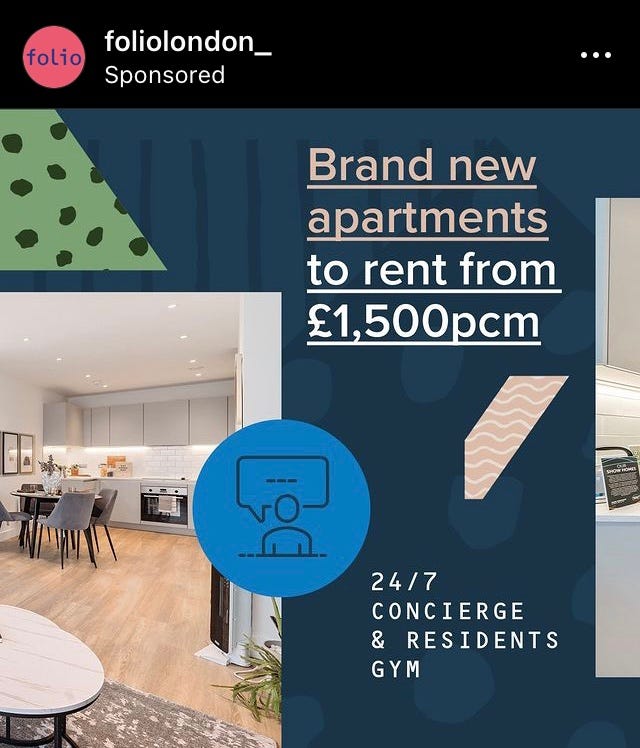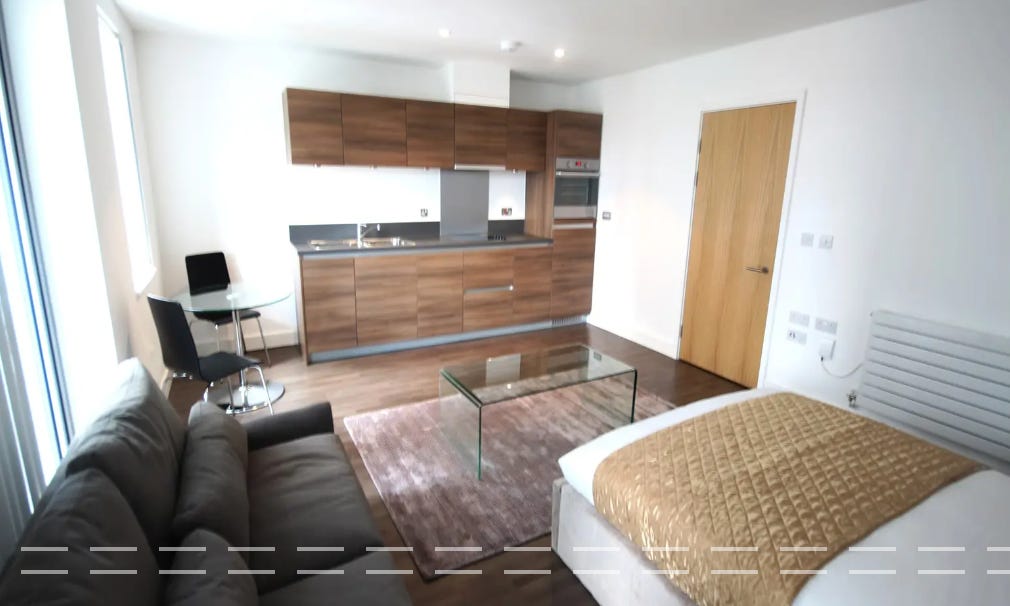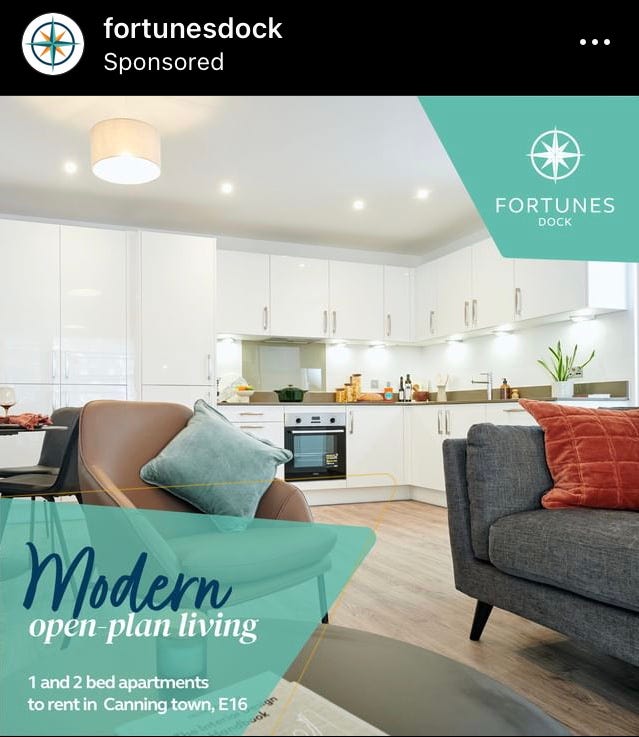Lived experience: Housing crisis (2)
It's not as easy as "just move somewhere else" — also: exposing property advertised on Instagram
Please note: Just because any of the below does not match your own experience or that of your nearest or dearest, doesn’t mean it’s okay to invalidate my or anyone else’s lived experience. You are not the default, and even if you were: yes, and? So?
Living as a migrant in the home counties, it was amazing for me to experience how much more interest from potential employers and freelance clients I got after I got married and took my then partner’s very English name. The effect on my chances of work when I no longer had a very foreign name that most people struggled to pronounce was so beyond all expectation that I kept hold of the name after my divorce.
After my divorce I also moved from the home counties into London, which further boosted my opportunities to work: simply put, there are more jobs in London than outside of it. Rents in London were higher, yes, but so was pay, and taking into account the time and money regular commuting costs… it was a good move for a child-free thirty-something singleton.
As much as I didn’t set out to become entirely London-centric, economic circumstance made me thus. When it came to searching and finding work, I cast my net wide, but almost always ended up within London. Even remote work always involved at least occasional attendance at a London office and whenever there wasn’t any remote or hybrid work, most stop-gap jobs would be within London.
London 2012’s Olympics and Paralympis could and should have changed this, with a mayor actively leading a campaign to deter people from coming to London. It certainly hit the pause button on parts of London’s economy but it didn’t boost a remote-working culture nor did it encourage businesses or people to move out of London permanently.
The COVID-19 pandemic seemed to make a change, with actual lockdowns forcing workers en masse to work from home, and nearly every friend or acquaintance I had living near me ended up moving out of London. But the urge of business leaders to “get everything back to normal” was so strong, I would argue from my personal experience that there is now less opportunity to work remotely for businesses based in London than there was beforehand. The same business leaders that wanted people back to the office also cut costs by reducing their overall office space, so now most people are expected to work “hybrid” which is the worst of both worlds: 2-3 days a week in a noisy, overcrowded office and if you live outside London, a part-time commute that will cost you more time and more money overall than a daily commute within London used to be.
Moving out of London is only an option for those who can afford to, and that can be a challenge when you cannot find work that enables you to move out of London, while rent levels within the city leave little to no disposable income to save up for any such move anyway. Meanwhile moving back to or even moving within London (where most work is) is also only an option for those who can afford to.
In this fairly recent publication by the Office of National Statistics (ONS), average weekly earnings are put at £672. According to the Salary Calculator this equates to a gross annual income of £34944, and a net monthly pay of £2389.94 (provided you do not pay into any pension…!)
This being an average means that it’s likely many people earn considerably more or less than this, but the problem in London is that in the current housing market people who do not earn well beyond the average are locked out with nowhere to go unless they find someone to share the burden.
Instagrammable home
Meta seems to have figured out that I am currently without a home and is bombarding me on Instagram with supposedly targeted sponsored posts for mostly new homes that look very instagrammable but are painfully misfired. I work full-time in decent well-paying jobs but earning below the average earnings mentioned above and considerably below what I would need to earn.
Of course, Instagram isn’t real life, but wherever I look around London at tower blocks going up, they’re all pretty much the same as what I get to see in the sponsored posts in my Instagram feed, so, in that sense those posts are strangely representative of real life for anyone seeking a home in London that isn’t old, damp and decrepit.
As far as I’m concerned, (corporate) landlords can keep their residents-only gyms and communal co-working spaces, especially if they’re used to justify extortionate rent amounts. Heck, they can even keep their “luxury furnishings” because nearly every London home I see is hopelessly over-furnished with bulky boxsprings combined either with ugly mismatched dumpings of discarded old furniture or with bespoke/designer furnishings that leave little floorspace and no way to change the (bad!) layout.
Still, I’d love a small bedsit/studio even if it is no bigger than a small bedroom, even if it isn’t particularly photogenic, even if it has windows I can’t actually see through (something I’ve been accustomed to since 2017), as long as it has (small, modest) kitchen and bathroom facilities that I won’t need to deep-clean to rid them of other people’s mess or filth every single time I want to use them. And I’d like that at a rent that doesn’t require me to work multiple jobs at all times and puts me at immediate risk of homelessness any time life (or my body/health, or a pandemic or other global crisis) doesn’t afford me the ability to work that much in order to earn enough.
Alas, even that desire cannot be met so I guess I am now suffering from a misplaced sense of entitlement for wanting a modest room and a clean toilet and shower, because that’s just not within my budget anymore and I cannot begin to express how depressed and despondent that is making me feel in my 40s.
No comment
So I started leaving comments on sponsored Instagram posts to reflect this, because, well, to give you the example below, “East Village E20” is the former Olympic Park, which was (and in many ways still is) one of London’s poorest areas, where this regeneration was sold as intended to help all Londoners and not just those with way-above-average earnings:
But the problem with leaving comments like this is: they either do not post at all when I try, or they are removed soon after. Sometimes entire posts are removed (and then usually reposted as brand new posts later.
These are sponsored posts that I have no way of blocking out of my feed either, but my comments aren’t doing anything so instead I am going to try and post screenshots here with the actual information about these properties and how they fail to serve most Londoners.
Park North, N15
N15 is Seven Sisters. These new-built apartments are for sale and prices start at £420000 for a 48m2 1-bedroom flat. £420000 is 12 (TWELVE) times the average (gross) annual earnings referenced above. A 10% deposit sets you back 9882 lattes, so start making your own coffee and you might find yourself able to live in Tottenham soon, right?.
The Hue by FABRICA
The Hue is a development in Hounslow, which is very near Heathrow Airport so living here likely means finding yourself under a flight path. Shared Ownership (SO) means you buy (i.e. pay a deposit and take out a mortgage) on a percentage of the value of the home, while paying rent over the remaining percentage that you’re not buying.
The IG advert mentions an apartment with a value of £342500 where you buy 35% (119875) though the website mentions its least expensive available apartment is a one-bedroom one of 50m2 where the minimum 35% share costs ‘only’ £113750. That’s ‘only’ 3.25 times the average annual wage referenced above and a 10% deposit on that equates to ‘only’ 2677 lattes. Having tried out several online mortgage calculators with a 25-year term and a 5% interest rate, they all come out with repayments of around £600/month. But, on top of your mortgage, you pay rent on the remaining share (at the time of checking listed as an estimated £5808/year, so £484/month) and a service charge (at the time of checking listed as an estimated £241/month). This totals to £1325/month or 55% of the average monthly take-home pay referenced above (which likely disqualifies you from a mortgage and/or this particular SO scheme).
Folio London
Folio advertises London apartments to rent “from £1500 per calendar month” and when I search their website, I find the least expensive apartment listed to be less than that at £1450 a month, for a studio apartment in Canning Town.
What worries me is the strange distortion in the pictures on the websites, presumably applied to make the spaces pictured look larger. No real toilet bowl looks like this:
The most normal, least distorted picture looks like this (though the site state this may not be the *actual* apartment available):
It’s… okay (but not great). I can only hope it comes unfurnished, because how could they get the layout so wrong on such a straight-forward space… it’s bed and a sofa inside an open plan kitchen. A studio this size should have come with a kitchenette, not the full kitchen block. As a renter you won’t be able to change that, but if it were to come otherwise unfurnished you could opt for less and smaller furniture, perhaps put in a day bed instead of a full-size double, which then might leave you with enough space as well for a decent-size wardrobe; otherwise you’ll probably have to use some of the kitchen cabinets for clothes and other storage.
The good news is that heating and electricity are included in the listed rent amount, but the bad news is: If you’re on an average gross annual income of £34944 (as referenced above), you don’t get to rent this or anything like this.
Most (corporate) landlords or agents will expect a gross annual income of 30 times the monthly rent (£1450x30=£43500) and that’s usually based on the basic rent amount that doesn’t include any utilities. Folio, however, on this particular studio apartment, demands a minimum gross annual household income of £48000. And with just the one room to cook, eat, sleep, and possibly work, you can’t exactly split it into a flatshare either.
Buying fewer lattes isn’t going to help you; you need to find a job that pays nearly 40% above the average earnings to afford this.
Fortunes Dock
Fortunes Dock is also in Canning Town and the lowest rent listed on their website is £1950 for a one-bedroom, or 82% of the take-home pay on the average earnings referenced above. Rent includes WiFi but no other bills.
I suppose you could make it a flatshare with one other person, if both of you earn £30K/year and one of you doesn’t mind sleeping in the open kitchen/living area and both of you accept the distinct lack of privacy this leaves both of you with.
So what can you afford?
Per the 30-times-monthly-rent-as-gross-annual-income guideline applied by most agents and landlords, a gross annual income of £34944 should qualify you for rents up to £1165/month, which, with council tax and bills on top will be more than half your take-home pay. That is more than many Londoners can afford, but rules you out of most purpose-built self-contained private-sector properties without a damp problem and likely disqualifies you for all of the very many apartment blocks popping up everywhere throughout Greater London (and in my Instagram feed), unless you find romance – HEY TINDER/HINGE/BUMBLE/POF/RAYA1 YOUR AFFILIATE LINK COULD HAVE BEEN HERE! – or buddy up to share.
In a future post I’ll likely dive into the ads for property outside of London and/or the lower end of the London market.
Subscriptions to this Substack are free but… you can hit the Subscribe button below to receive an email any time I post something on Substack, or you can hit the other button below to buy me a coffee, or… do both!
Oh wait, LOL, not Raya, you need to be famous or at least reasonably wealthy-to-the-point-of-not-needing-a-flat-share for Raya…
